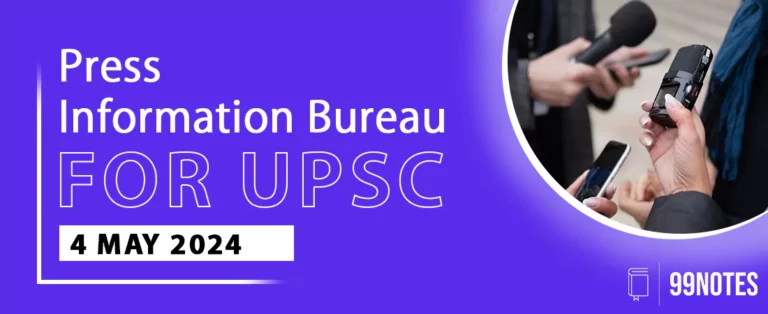25 July 2024 : Indian Express Editorial Analysis
1. Budget’s political choices
(Source: Indian Express; Section: The Editorial Page; Page: 14)
| Topic: GS3– Indian Economy – Government Budgeting |
| Context: |
|
Political Realities vs. Economic Realities
- The first budget of the third term of the National Democratic Alliance (NDA) reflects the government’s altered political circumstances but diverges significantly from the country’s economic needs.
- Post-election dynamics necessitated mentions of key states like Bihar and Andhra Pradesh, vital for the government’s survival. However, the budget fell short of these states’ expectations.
- This post-election budget offered an opportunity to reset the fiscal paradigm, aiming to initiate reforms crucial for an economy still reeling from the first-term slowdown and pandemic-induced shocks during the second term.
- Despite signs of recovery, the economy grapples with deficient demand, resulting in sluggish consumption growth, lackluster private investment, and fragile exports.
- For sustainable growth, boosting demand from private consumption, investment, and exports is imperative.
Deficient Demand and Income Stagnation
- The causes of deficient demand are well-documented. Indicators of income and earnings over the past decade point to either stagnation or decline in real earnings.
- Data from the Periodic Labour Force Surveys (PLFS) reveal that real earnings of regular workers have been falling since 2011-12. Labour Bureau data shows a decline in real wages in non-farm occupations, with agricultural wages remaining almost stagnant.
- Reports on the unorganized sector also suggest a decline in real earnings. Cultivation incomes have seen a meager annual increase of 1% over the last decade.
- These earnings trends affect nearly three-fourths of the workforce. The budget should have focused on raising workers’ earnings, yet it fails to acknowledge the earnings crisis.
- Rural distress, persisting for nearly a decade, is now affecting urban areas, with depleting household savings and non-collateralized retail loans driving limited consumption growth.
Agricultural and Rural Economy: Neglected Priorities
- The Finance Minister could have found solutions within the government’s own Economic Survey, which underscores the need for agricultural growth for sustained economic revival.
- Despite this, the budget offers only a wish list without substantial allocations for agriculture. The budget reduced the allocation for the National Mission on Natural Farming, and the total budget for agricultural research institutes and universities declined compared to the previous year.
- Among the eight schemes under the priority of ‘Productivity and Resilience in Agriculture,’ none saw increased budgetary allocation.
- Key subsidies, such as those for fertilizer and food, received lower allocations, and the PM-KISAN scheme’s yearly transfers have remained unchanged since 2019.
- The broader rural economy also saw negligible increases in allocations, with MGNREGA facing a decline in funds compared to actual spending in 2022-23.
- Given its crucial role in boosting rural wages, MGNREGA could have been instrumental in improving rural incomes.
Private Sector Investment: Misaligned Incentives
- The Economic Survey criticizes the private sector for not boosting private investment, yet the budget does little to encourage them.
- The 2019 corporate tax cuts, intended as a supply-side response, failed to revive private sector investment. Instead, corporations used these subsidies to clean up their balance sheets without increasing investment or generating employment.
- Blaming the private sector is not the solution; the real issue is lack of demand. Without robust demand, corporations are unwilling to invest.
- The solution lies in creating demand in the economy, not in offering incentives and subsidies to the corporate sector.
Employment Creation: A Flawed Strategy
- The budget proposes a plan to spend Rs 2 lakh crore over six years to create 41 million jobs, but the current year’s allocation is only Rs 28,000 crore for employment incentive schemes, which are unlikely to be fully utilized due to stringent conditions.
- The requirement for enterprises and workers to be part of EPFO is a significant barrier, with the total number of EPFO-registered workers declining from 14 million in 2022-23 to 13 million in 2023-24.
- The government aims to create 16 million EPFO-enrolled jobs this year, with a government cost of Rs 17,500 per employee, leaving the private sector to bear the majority of the new employee costs.
- With average salaries around Rs 25,000 per month, the private sector will shoulder 94% of the new employee costs.
Political Choices and Economic Impact
- The effectiveness of the budget in terms of actual spending and job creation will only be evident next year, potentially revealing a disconnect between budget announcements and concrete action plans.
- For meaningful demand and investment revival, a shift in the political-economic paradigm is required. The current approach favors supply-side incentives, which are ineffective when the core issue is lack of demand due to stagnant or declining incomes.
- This political-economic stance prioritizes large corporate subsidies at the expense of investment in agriculture, rural development, and human capital.
- The issue is not one of fiscal prudence but of political priorities regarding expenditure. Ultimately, a budget reflects political choices as much as it does fiscal policies.
| Practice Question: The first budget of the National Democratic Alliance’s third term reflects political necessities but fails to address the economic realities of deficient demand and stagnating incomes. Critically analyze the budget’s approach towards agricultural and rural development, private sector investment, and employment creation. (250 words/15 m) |
2. The thinning of Kannada
(Source: Indian Express; Section: The Ideas Page; Page: 15)
| Topic: GS1– Society |
| Context: |
|
The Challenge of Local Identity in Karnataka
- In Karnataka, maintaining a strong local identity is increasingly challenging. Recently, a farmer wearing traditional attire was denied entry to a mall despite having the means to shop, revealing an underlying capitalist bias.
- This incident highlights not only social discrimination but also the mall’s unpaid property taxes, reflecting deeper issues of legality and fairness.
Government’s Attempt at Job Reservation for Locals
- The Karnataka government’s efforts to make locals more visible in the job market have sparked controversy.
- The proposed Karnataka State Employment of Local Candidates Bill, 2024, aims to reserve 70% of non-management jobs and 50% of management jobs for local candidates.
- However, defining “local” as someone domiciled in Karnataka for 15 years, and the requirement for migrants to learn Kannada, has alarmed industry leaders.
- They fear such policies could negatively impact their economic prospects.
Language and Cosmopolitan Identity
- Bengaluru, known as the “Dubai of India,” prides itself on being cosmopolitan, with residents who often do not speak the local language.
- Many professionals and workers in Karnataka operate without knowing Kannada, relying instead on English or other languages.
- This creates a divide between those who are skilled in English and those who are not, reinforcing the perception that learning Kannada is unnecessary.
Kannada’s Struggle for Relevance
- Kannada, despite its rich cultural and literary heritage, struggles for prominence in a state overshadowed by English and Hindi.
- Efforts to promote Kannada, such as establishing a Kannada Development Authority and mandating its teaching in schools, have had limited success.
- The language’s diminishing presence is concerning, especially as it affects not only cultural identity but also economic participation.
The Need for a Bilingual Policy
- To address these issues, Karnataka needs a robust bilingual policy that encourages the use of both Kannada and English.
- This would allow locals to participate fully in the economy and cultural life of the state.
- Such a policy requires the support of the state, the bourgeoisie, and a shift in public attitude towards valuing bilingualism.
- Only then can Karnataka achieve a balance between local identity and cosmopolitan inclusivity, fostering a culture of self-respect, civility, and self-worth.
| Practice Question: In the context of Karnataka’s efforts to preserve local identity and language, critically examine the proposed Karnataka State Employment of Local Candidates Bill, 2024. Discuss the potential economic and cultural implications of such policies. How can the state balance the need for local identity with the demands of a cosmopolitan economy? (250 words/15 m) |



